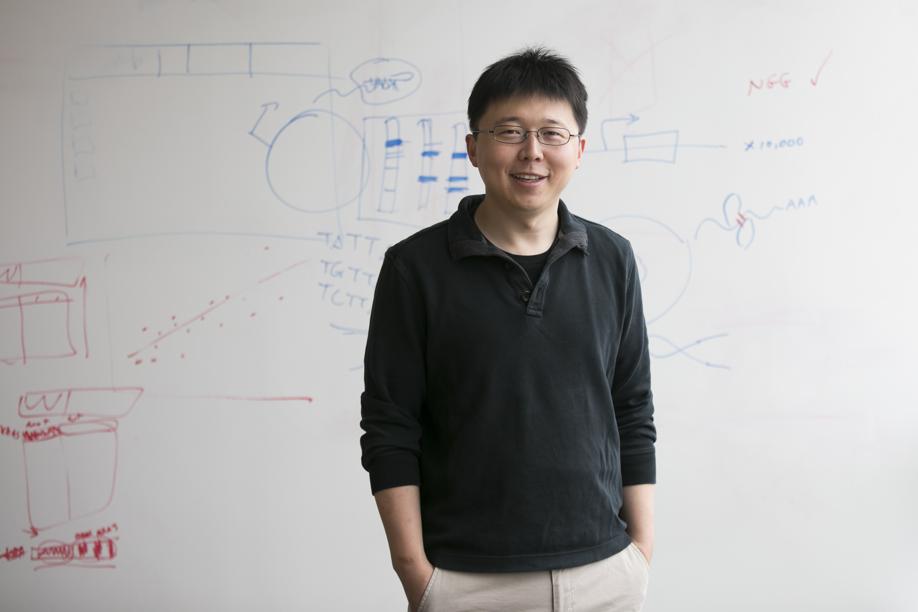
The $500,000 Lemelson-MIT Prize is being awarded this year to bioengineer Feng Zhang, a key developer of the CRISPR genome-editing technology, the prize jury announced Tuesday.
Although Zhang, whose lab is at the Broad Institute of MIT and Harvard, is best known for CRISPR advances such as editing genes in human and mouse cells, he wasn’t honored only for that, said bioengineer Michael Cima of MIT’s Koch Institute, the faculty director of the award.
“It’s for his track record of innovations and of coming up with big ideas that change fields,’’ Cima said. “Zhang is one of those individuals who move through groups of talented people sparking new ideas,’’ including optogenetics and an earlier genome-editing method called TALENS.
Zhang’s insights emerge from a sort of mental kaleidoscope, brain processes that mix together different facts and questions into novel ideas like the optical device mixes bits of colored glass into new patterns. He keeps a mental list of questions he’s wondering about, Zhang said, “so when I’m listening to someone or reading something, I always think, is there a way I can apply what I heard or read to one of these questions?’’
The Lemelson jury also cited Zhang’s support for open science, in particular his practice of making his CRISPR constructs freely available to other researchers, before he has even published the study the constructs were used in, via the nonprofit organization Addgene.
Technicians at the Cambridge-based group make copies of genetic and other biological material that scientists send, run quality checks, and send them to researchers who want to do basic experiments with the material (they can’t use it to make a commercial product), charging only for shipping and handling (typically $65).
“If Addgene didn’t exist, my lab would get no other science done,’’ Zhang said. “We’d be stuffing envelopes all day’’ to fulfill requests.
He has only semi-fond memories of “honing my FedEx printing and mail-merge skills’’ when he was a graduate student at Stanford pre-Addgene, sending samples to labs that requested them.
Zhang has been one of the most prolific — and popular — depositors to Addgene. From his 208 deposits, more than 42,000 copies have been sent to scientists in 65 countries, and 48 have been requested more than 100 times, said executive director Joanne Kamens.
The seven-person Lemelson jury (members’ names aren’t released) also cited Zhang’s continued contributions to CRISPR technology, such as finding ways to reduce off-target effects in which CRISPR edits DNA it shouldn’t, and the regular workshops on genome editing that he holds.
“He doesn’t just publish a paper and put [details of what he did] in the methods section,’’ said Cima, an inventor of 3-D printing. “As scientists, we struggle to learn new methods from other labs.’’
Zhang said he plans to use some of the $500,000 to support science education through groups like the Center for Excellence in Education, which sponsors the USA Biology Olympiad.
A key criterion for the Lemelson, which goes to inventors who got their college degree no more than 25 years earlier, is having patents. Zhang has more than a dozen CRISPR-related ones, the topic of a multimillion-dollar war between UC and the Broad over who’s entitled to which. So far, the Broad has won in the United States while UC won in Europe and China.
Sharon Begley can be reached at sharon.begley@statnews.com. Follow her on Twitter @sxbegle.



